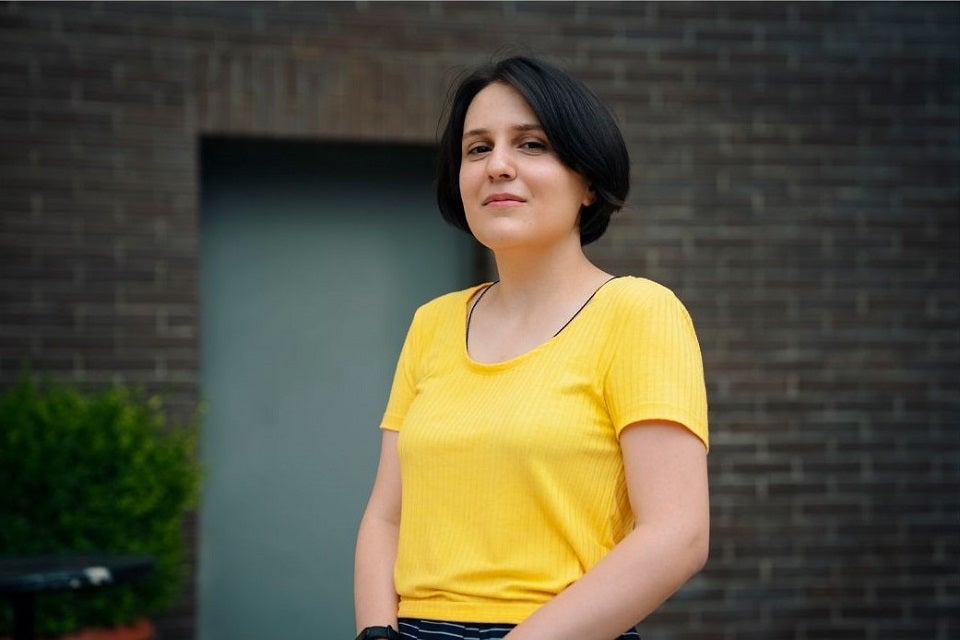Podcasts for strengthening women with disabilities
Date:

Mariam Darbaidze, 23, is a novice vlogger. A sociologist by profession, she has her own channel on YouTube and generally records her vlogs about hearing impairment. She is a person with disability herself, and this inspired her to create an online platform: “I wanted to share my experience with others as well,” says Mariam, who turned her dream into reality a month ago.
Before becoming a vlogger, she created podcasts. Where Mariam was one of the five authors who recorded a series of podcasts, entitled “Gender and Disabilities”, for the popular media platform Feminstream. This project was implemented by the Women’s Fund in Georgia, with the support of UN Women.
“Nobody knows this [experience] better than a person with hearing impairment,” notes Mariam, “not even a parent or anybody else. It was important to me that those with this disability spoke about the issue themselves and were free in what they said. That is why I applied [to participate in the series]. I think my podcasts really promoted mainstreaming of women’s problems.”
With the direct participation of disabled women, the podcasts had several objectives: to present important issues for women with disabilities, to create a space for discussion, to raise and strengthen awareness, to increase the visibility of women with disabilities, to promote bringing them closer to women’s rights defenders and to foster their solidarity and inclusion. It should be noted that three of the five podcast creators were persons with a disability.
The podcast developers reviewed important topics, such as property rights and mental health problems of women with disabilities, disabilities and motherhood, sexual abuse, the importance of a social model for women with disabilities and so on. In total, 16 podcasts were prepared as part of the initiative, with up to 125,200 views.
It is worth mentioning that the authors took special training before they prepared their material and became familiar with the characteristics of a podcast, as one of the most popular media platforms today. They equally learned how to record and edit audio files, attended speech classes and received individual recommendations and advice. Mariam went on to use the experience she gained during the training for her own vlog: “I learned how to edit my voice; I didn’t know anything about that software before. The speech lessons were very useful too. I already know how to do exercises independently. And now I want to film these exercises, put them on the vlog and share the experience I gained at Feminstream with others as well.”
The podcasts were prepared as part of the UN Women “Transforming Social Protection for Persons with Disabilities in Georgia” project from the Women’s Fund in Georgia. This project is being implemented by UN Women Georgia in partnership with UNICEF, WHO, UNDP, UNFPA and OHCHR, with the generous support of the Joint SDG Fund.